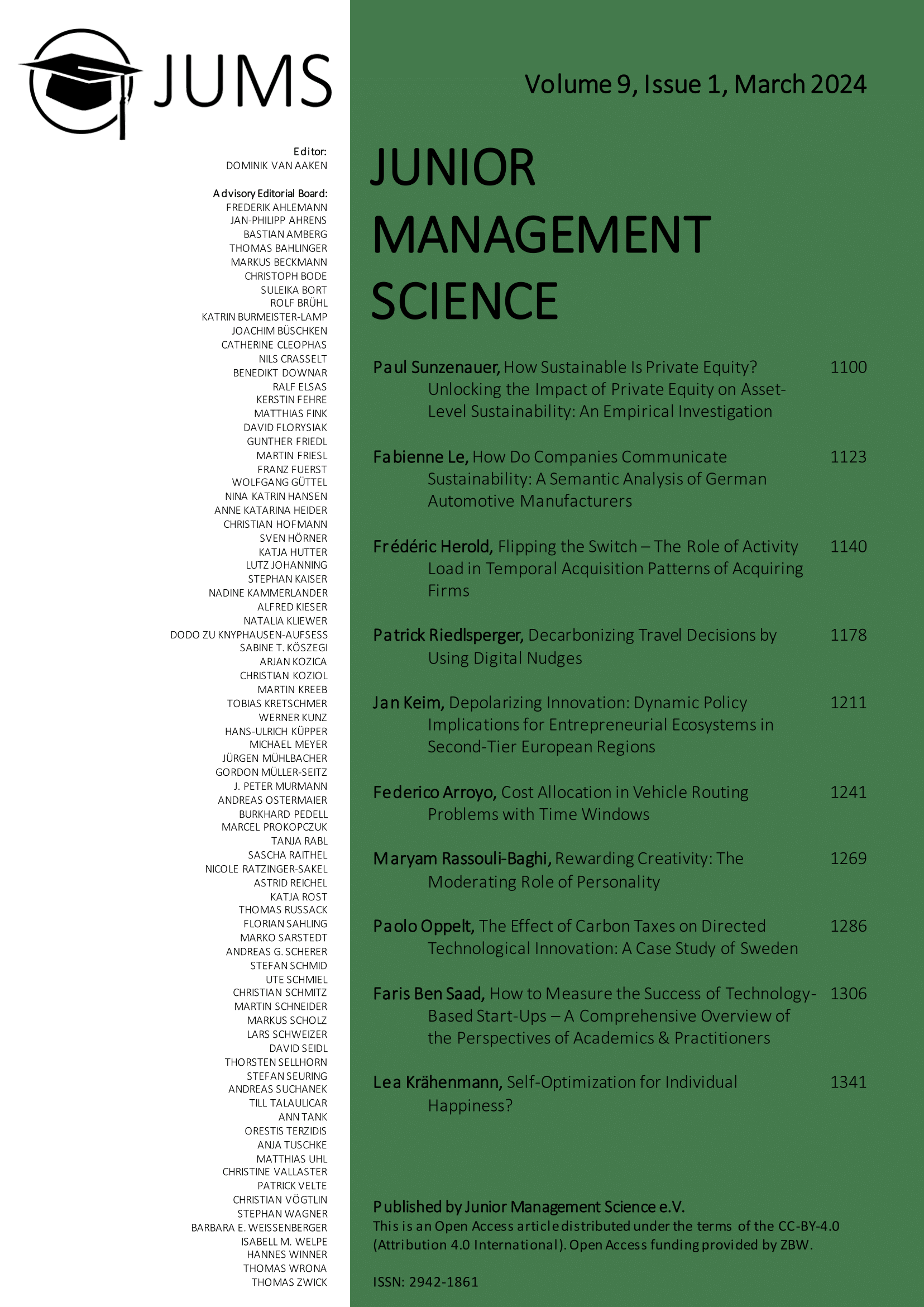Abstract
A carbon tax is widely seen as an effective climate policy instrument for discouraging the emission of greenhouse gases that cause climate change. According to the economic theory of the Porter hypothesis, a carbon tax can induce directed technological change toward innovation in clean technologies. Nevertheless, empirical research on the effects of a carbon tax on clean innovation, especially concerning recent periods, is sparse. This paper uses a quasi-experimental approach, in the form of the synthetic control method, to estimate the effect of carbon taxes on climate change mitigating technologies. I conduct a case study of the introduction of the carbon tax in 1990/1991 in Sweden and its effect on clean technology in the transportation sector. Sweden is chosen as it was the first country, next to Finland, to implement a carbon tax, and that at a significant price. I find that the introduction of the carbon tax in 1990/1991 has a positive effect with an economically meaningful magnitude on driving innovation in climate change mitigating technologies. The significant and strong effect of the carbon tax on clean innovation can provide important policy insights for other governments, which did not yet introduce a carbon tax or did not do so at an insignificant rate.
Keywords: carbon taxation; clean technology innovation; Sweden; synthetic control method; transportation sector

This work is licensed under a Creative Commons Attribution 4.0 International License.
Copyright (c) 2024 Paolo Oppelt

